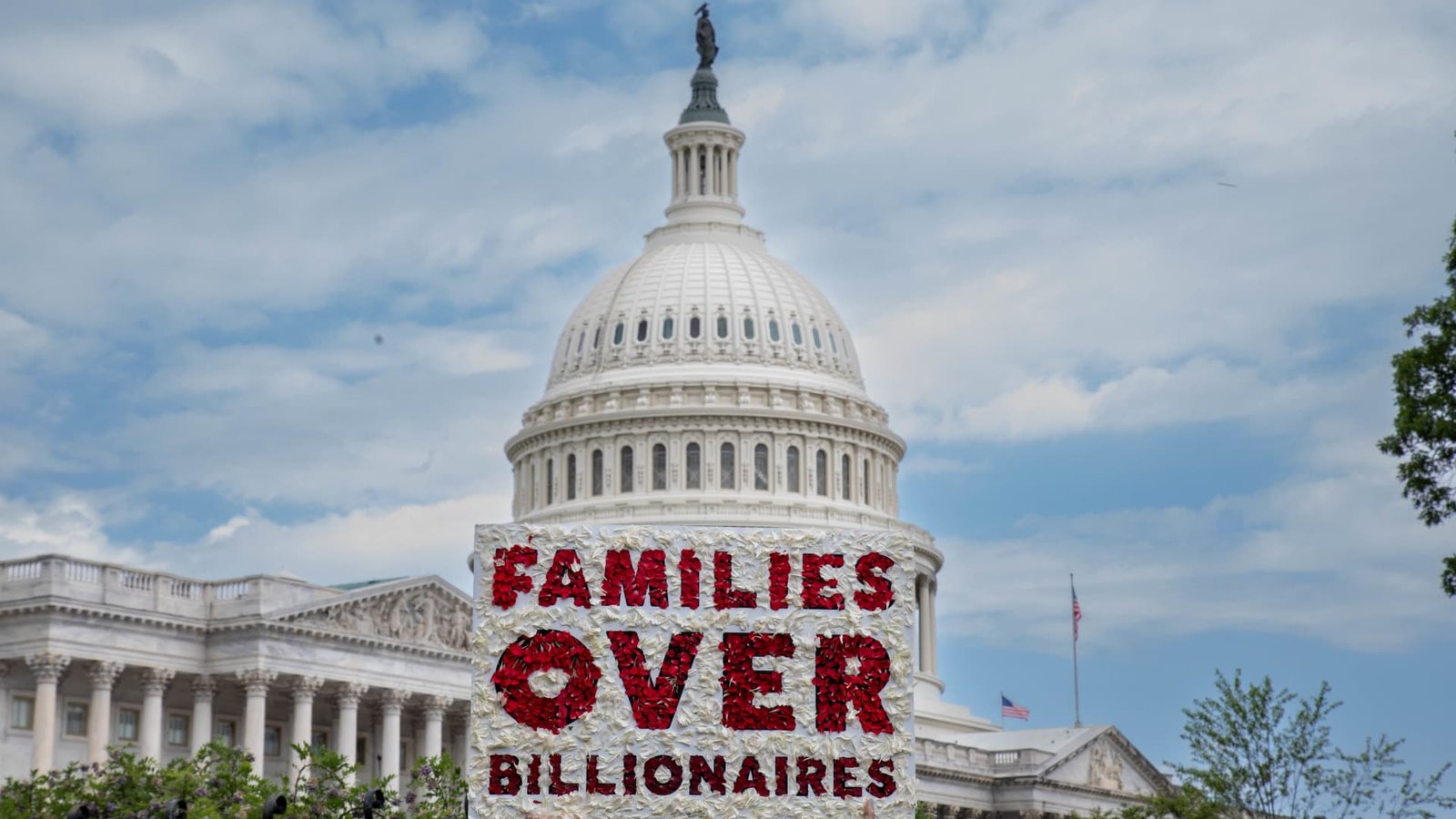Speaker of the House Mike Johnson, R-La., pictured at a press conference after the House narrowly passed a bill forwarding President Donald Trump’s agenda on May 22 in Washington, DC.
Kevin Dietsch | Getty Images
House reconciliation legislation, also known as the One Big Beautiful Bill Act, includes changes Republican legislators said will boost families’ finances.
Those proposals include $1,000 investment “Trump accounts” for newborns and an enhanced maximum $2,500 child tax credit for eligible parents.
Proposed tax cuts in the bill may also provide up to $13,300 more in take-home pay for the average family with two children, House Republicans estimated.
“What we’re trying to do is help hardworking Americans who are trying to provide for their families and make ends meet,” House Speaker Mike Johnson, R-La., said during a June 8 interview with ABC News’ “This Week.”
Yet the proposed changes, which emphasize work requirements, may reduce aid for children in low-income families when it comes to certain tax credits, health coverage and food assistance.
Households in the bottom 10% of income distribution would lose about $1,600 per year, or about 3.9% of their income, from 2026 through 2034, according to a June 12 letter from the Congressional Budget Office. That loss is mainly due to “reductions in in-kind transfers,” it notes — particularly Medicaid and the Supplemental Nutrition Assistance Program, or SNAP, formerly known as food stamps.
not refundable. This means low-income families who pay little or no tax can’t take a $2,500 per-child credit on their tax bill, because they don’t owe that much in taxes.
Consequently, 20 million children would be left out of the benefits of the full child tax credit because their families earn too little, Ruben said.
“It is raising the credit for wealthier families while excluding those vulnerable families from the credit,” Ruben said. “And that’s not a pro-family policy.”
A single parent with two children would have to earn at least $40,000 per year to access the full child tax credit under the Republicans’ plan, he said. For families earning the minimum wage, it may be difficult to meet that threshold, according to Ruben.
In contrast, an enhanced child tax credit put in place under President Joe Biden made it fully refundable, which means very low-income families were eligible for the maximum benefit, according to Elaine Maag, senior fellow at the Urban-Brookings Tax Policy Center.
In 2021, the maximum child tax credit was $3,600 for each child under age six and $3,000 for each child age 6 to 17. That enhanced credit cut child poverty in half, Maag said. Immediately after it expired, child poverty increased, she said.
The current House proposal would also affect about 4.5 million children who are U.S. citizens but whose families are ineligible for the child tax credit because at least one parent is undocumented and files tax returns with an individual tax identification number, Ruben said. An ITIN is a tax processing number “only available for certain nonresident and resident aliens, their spouses, and dependents who cannot get a Social Security Number,” according to the IRS.
Those families are currently eligible for the child tax credit based on 2017 tax legislation but would be excluded based on the new proposal, Ruben said.
require precertification to qualify.
When a similar requirement was tried about 20 years ago, it resulted in some eligible families not getting the benefit, Maag said. The new prospective administrative barrier may have the same result, she said.



